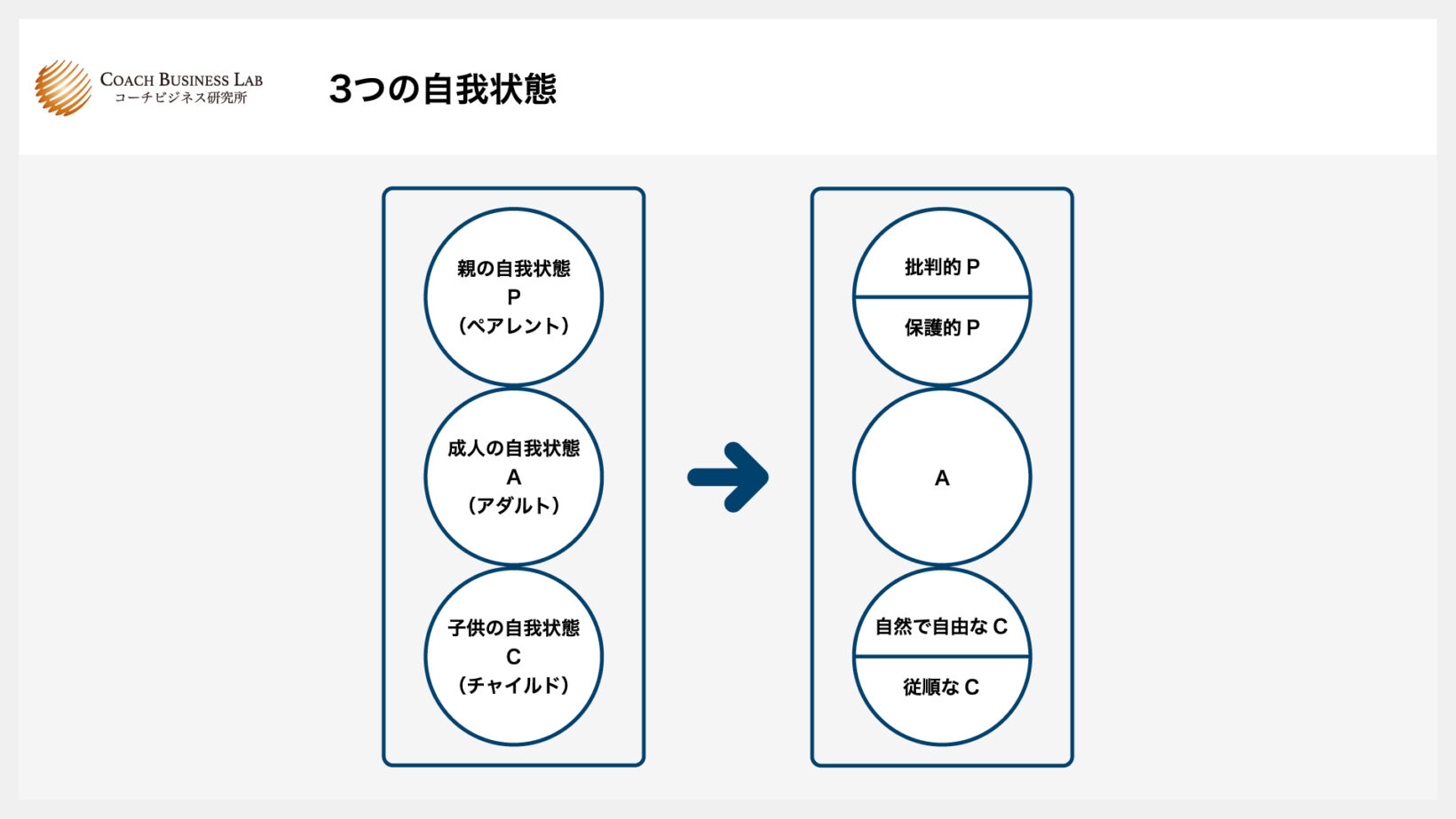
How do we understand our counterparts and those around us?
Imagine that here is a mother. This mother shows a completely different attitude from time to time.
For example,
She is yelling at her child because he doesn’t listen to her very much.
She is listening to what her child is trying to say with a smile and kind eyes.
She is thinking about what she is going to do for the day and what steps she is going to take to get it done.
On the way to the store, She is chatting happily with her neighbor’s wife, with whom she is good friends.
She and her husband are having a fight, and she is deflecting with a pout, not listening to what your husband has to say.
In each of these states, she looks like completely different people.
Eric Berne, the founder of interaction analysis, called the state of thinking “this is who I am” the “ego state.” There are three major symbolic ego states inside a person… P (Parent), A (Adult), and C (Child).
The P ego state is considered to be a state in which the child has internalized the ways and ideas of his or her parents during infancy, and is described as having two sides: Critical Parent (CP), which is strict, firm, critical, and scolding, and Nurturing Parent (NP), which is kind, protective, and caring. The A ego state is the state of being an adult.
The A ego state is the state of an adult, focusing mainly on the functional aspects of the ego, such as a sense of reality, profit and loss, efficiency, and information gathering. It is an ego state in which the ego is able to look at reality calmly, make projections and plans, deal with things appropriately, and solve problems on its own initiative.
The C ego state is a state in which the emotional experiences of childhood are revived and reproduced, and it is pointed out that there is the Free Child (FC), which is a natural child that expresses joy, anger, sorrow, and anger in an innocent manner and behaves in a self-centered manner, and the Adapted Child (AC), which is a child that is obedient to his/her parents. The other is the AC (Adapted Child), which manifests itself as obedience to the parent.
All three exist within a person. However, everyone is found to have a bias in the ratio of P, A, and C. By looking at the ego and analyzing oneself, one can form better relationships with others.

コーチング情報局を運営する株式会社コーチビジネス研究所では、企業を対象としたコーチング研修、ビジネスパーソンを対象としたビジネスコーチング、個人の方を対象としたライフコーチングを提供しております。その他、コーチングを学びたい方のためのコーチングスクールの運営、経営者やビジネスリーダー向けにセミナーを開催しています。興味や関心がございましたら、お気軽にご相談・お問い合わせください。
This article was written in Japanese and converted into English using a translation tool. We hope you will forgive us for any inadequacies.
Coach Business Laboratory, Inc., which operates the Coaching Information Bureau, provides coaching training for companies, business coaching for business people, and life coaching for individuals. In addition, we operate a coaching school for those who want to learn coaching and hold seminars for executives and business leaders. If you are interested or have any questions, please feel free to contact us for further information and consultation.


